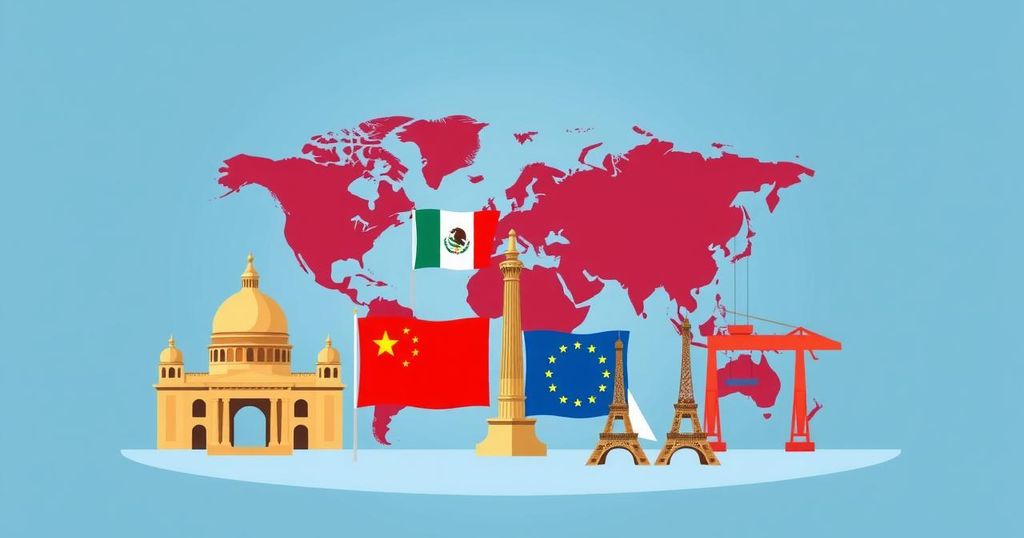Trump’s Tariff Strategy and Global Implications: Insights from Dhruva Jaishankar

Dhruva Jaishankar discussed U.S. tariff priorities under President Trump, which include Canada, Mexico, China, and the EU, with India being somewhat exempt. He is hopeful for interim agreements in trade negotiations and highlighted the positive tone of the Raisina Dialogue. Jaishankar also noted the complexities of the Russia-Ukraine conflict and the growing challenges facing the Global South, emphasizing the need for institutional reforms and cooperation.
Dhruva Jaishankar, Executive Director of the Observer Research Foundation, stated that President Donald Trump’s tariff priorities include Canada, Mexico, China, and the European Union, with India being relatively exempt. He expressed concern that India may face hardships due to global reciprocal taxes that Trump announced before his meeting with Prime Minister Modi. The Indian Union Minister of Commerce is engaged in discussions with the U.S. Trade Representative, with optimism for an interim agreement before April 2.
Jaishankar elaborated on the implications of the United States imposing tariffs, noting that India possesses significantly higher tariffs and may respond accordingly. He emphasized the importance of ongoing negotiations in stabilizing U.S.-India relations and indicated that Trump has occasionally shown a willingness to reconsider such decisions at the last moment.
He remarked on the ongoing Raisina Dialogue, calling it an important global forum, consisting of over 100 sessions and attended by 4,000 delegates from more than 100 countries. Jaishankar observed that the dialogue’s tone is more constructive compared to other international conferences, such as the Munich Security Conference, which tends to be more confrontational. Notable themes of the conference include trade, connectivity, and geopolitical shifts involving Russia and Ukraine.
Regarding the Russia-Ukraine conflict, Jaishankar mentioned that Ukraine has agreed to ceasefire terms, placing the responsibility on Russia to respond. Upcoming discussions between Trump and Putin may shape this situation, focusing on Ukraine’s post-ceasefire status, while the extent of U.S. involvement remains uncertain. He noted India’s potential intermediary role during negotiations, similar to Saudi Arabia’s position, should both parties agree.
In light of global challenges, Jaishankar identified three main issues pertinent to the Global South that also affect India: the need for institutional reform in agencies like the UN and the World Bank, health and food security concerns magnified by the COVID-19 pandemic and the ongoing war, and the matter of climate justice. With over 120 countries sharing these concerns, a less active U.S. role may create both opportunities and challenges for the Global South, calling into question the U.S. commitment to these critical issues.
In summary, Dhruva Jaishankar provided insights into the current tariff priorities of the Trump administration, highlighting potential challenges for India amidst U.S. trade policies. He emphasized the significance of dialogue and negotiation, particularly in the context of the Raisina Dialogue and the Russia-Ukraine conflict. Addressing broader issues related to the Global South, he outlined critical areas where collaborative efforts are necessary. Overall, the situation calls for vigilant diplomacy and a commitment to constructive engagement.
Original Source: www.business-standard.com








